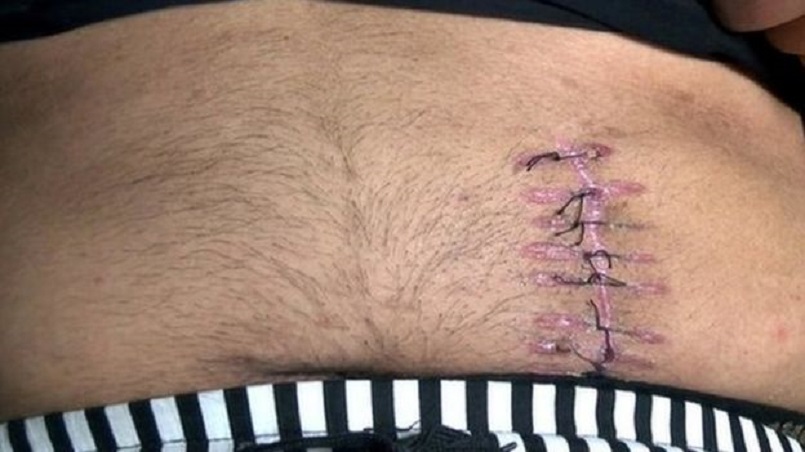
The Vatican has defended its decision to invite China to a conference on organ trafficking despite its record of using executed inmates as organ donors.
The head of the Pontifical Academy of Sciences (PAS) admitted he did not know whether the practice was continuing but said he hoped to encourage change.
Human rights groups say China is still using executed prisoners as a source of organ transplants.
Beijing says forced organ harvesting ended in 2015.
But the group Doctors Against Forced Organ Harvesting (DAFOH) said China's participation was compromising the conference and the PAS should reject its claim as no independent inspection had taken place.
"Without accountability, there is no reason to trust the government of China's claim that forced organ harvesting of prisoners has come to an end," said Dr Torsten Trey.
'Mass killing of innocents'
Those killed so their organs can be sold for transplant mainly include members of the Falun Gong, an exercise-based spiritual movement that became popular before being banned as a cult in 1999, but also include Christians, ethnic Tibetans and Uighurs and other people who have been imprisoned for their beliefs, campaigners say.
DAFOH wants Beijing to prove publicly that a 1980s law allowing organ harvesting has been abolished.
The group's criticism follows a report last year by the International Coalition to End Organ Pillaging in China (EOP), which said the Chinese Communist Party was behind the mass killing of innocent prisoners.
The US House of Representatives has condemned forced organ harvesting and called for its end.
China's controversial reformer
However the director of China's transplant programme insisted progress was being made despite some violations taking place.
"In my governmental organisation there is zero tolerance," Dr Huang Jeifu said.
"However, China is a big country, with 1.3 billion people, so sure, definitely, there is some violation of the law. If there is some violation of the law it will be severely punished."
Correspondents say Dr Huang is a controversial figure, credited by some with reforming a notoriously corrupt system but accused by others of being complicit in allowing it to continue.
The Vatican conference is a response to Pope Francis's efforts to crack down on trafficking in humans and organs.
Delegates have been told how desperate patients flock to countries where regulations are lax and organs can be cheaply bought, such as Egypt, India and Mexico, for everything from kidneys to corneas.
The conference aims to declare organ trafficking a crime against humanity.
It is taking place against a backdrop of warming ties between China and the Vatican.
They are believed to be close to a historic agreement governing the selection of bishops for 10m Chinese Roman Catholics.
